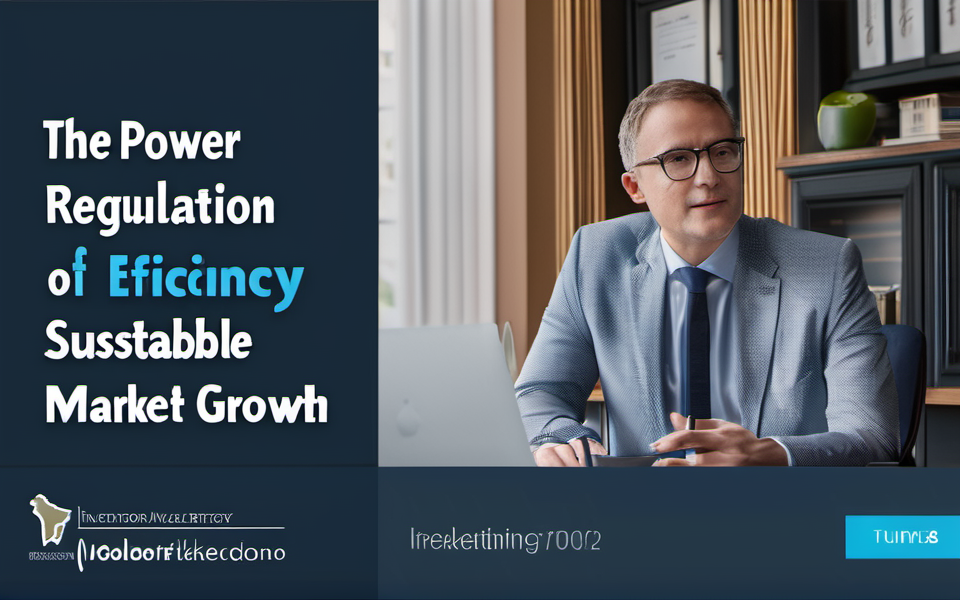You’re sick of market crashes, predatory pricing, and businesses that seem to have no conscience, right? You’re tired of the wild west of capitalism that feels more like a free-for-all than a system designed for progress. What if I told you there was a solution, a force that could tame the untamed, unlock true potential, and build a future of sustainable growth? Buckle up, because today, we’re talking about regulation, and how it’s not just some bureaucratic monster but a secret weapon for making the market work for everyone.
Why We Need Regulations in the First Place
Remember the dot-com bubble burst? Remember the Enron scandal? Remember the financial crisis of 2008? Those weren’t just bumps in the road, they were signals that our economic system needed an overhaul. We need financial regulations to prevent reckless speculation, environmental regulations to protect our planet, and consumer protection laws to safeguard us from being exploited by big corporations. These regulations are like safety nets, ensuring the market doesn’t become a free-for-all that ultimately hurts us all.
Regulating for a Fairer Playing Field
Think about a game of basketball. Would it be fun if there were no rules, if players could grab, trip, and push each other with no consequences? Of course not! The same applies to the market. Antitrust regulations exist to prevent monopolies, ensuring that big corporations can’t steamroll smaller ones, creating a level playing field for entrepreneurs and fostering innovation. Imagine a world without food safety regulations, where unscrupulous food companies can put unsafe products on shelves without repercussions. This type of system would create chaos and hurt both businesses and consumers. Regulation creates a baseline of safety and fairness, which is crucial for a thriving market.
How Regulation Fosters Sustainability
It’s not just about keeping the game fair; regulations can also steer the market towards long-term sustainability. Climate change regulation aims to incentivize companies to transition away from fossil fuels and adopt renewable energy sources. This isn’t about stifling growth; it’s about setting the stage for a new kind of economic prosperity, one that doesn’t destroy our planet in the process. Regulation also encourages companies to invest in research and development of innovative, green technologies. Environmental regulations can act as a powerful motivator for businesses to find creative solutions and adopt more environmentally friendly practices. This shift not only benefits our environment but also unlocks opportunities for new businesses and job creation.
Unlocking Market Efficiency
Regulation doesn’t just limit; it empowers. Financial regulations, by ensuring transparency and accountability in the banking sector, prevent reckless speculation and stabilize the market. This translates to better planning for businesses and individuals, promoting long-term growth and stability. Regulation fosters confidence and trust, leading to increased investment and overall economic prosperity. Think about it like this: if you knew a particular company was playing by the rules, wouldn’t you feel more confident investing your money in them? This is precisely what regulation does for the entire market.
The Role of Government in Regulation
It’s true; sometimes regulations can seem cumbersome and bureaucratic. But, here’s the truth: regulators need to be informed and responsive. Government has the role of being the ultimate protector of the public interest. The key is to strike a balance: regulations should be strong enough to achieve their objectives without stifling innovation or creating unnecessary burdens. Effective regulatory policies require collaboration and input from different stakeholders: government agencies, industry experts, consumer groups, and environmental advocates.
Adapting to Change: The Evolution of Regulation
The world is constantly changing. The digital age brought about new challenges and complexities, requiring new forms of data privacy regulations to protect consumer information and regulate online platforms. Regulation has to be dynamic, adapting to these changes and embracing new technologies. Think of artificial intelligence regulations: they aim to harness the potential of AI while ensuring fairness, transparency, and accountability.
Why Regulation Matters For You
Forget about conspiracy theories and whispers about the “nanny state”. Regulation is not about stifling innovation, it’s about promoting a more equitable and sustainable economy. We all benefit from a system that protects our health, environment, and finances. Think of the countless everyday things that you take for granted – clean water, safe food, and a stable banking system – all thanks to good regulations.
Empowering Consumers
Regulation is about giving you, the consumer, the power to make informed decisions. Clear labeling requirements for food and products empower you to choose healthier, more sustainable options. Regulation protects your personal data, ensuring your privacy and safety online. In a world with overwhelming choices, regulations serve as a guiding force, helping you navigate the market with confidence.
Building a Better Tomorrow
We’re not just talking about abstract concepts; regulation is shaping a better tomorrow for all. Sustainable development goals cannot be achieved without effective environmental regulations and social impact assessments that guide businesses toward responsible practices. Regulation is the force behind social progress, driving positive change in areas like fair labor practices, affordable healthcare, and quality education.
Key Takeaways
- Regulation is essential for a fair, efficient, and sustainable market.
- Effective regulations ensure consumer protection, promote innovation, and foster long-term growth.
- Regulations need to evolve and adapt to new challenges and technologies, particularly in the digital age.
- Government plays a vital role in setting regulatory frameworks and working with stakeholders to achieve balance and transparency.
- We all benefit from well-designed and enforced regulations that promote fairness, security, and progress.
The journey towards a more equitable and sustainable market requires strong regulation and active engagement from all stakeholders. It’s not a matter of government vs. industry, it’s about working together to create a future where everyone can thrive. The power of regulation is not a threat, it’s a promise: a promise of a more just, secure, and prosperous future. Now, let’s start building that future together.




